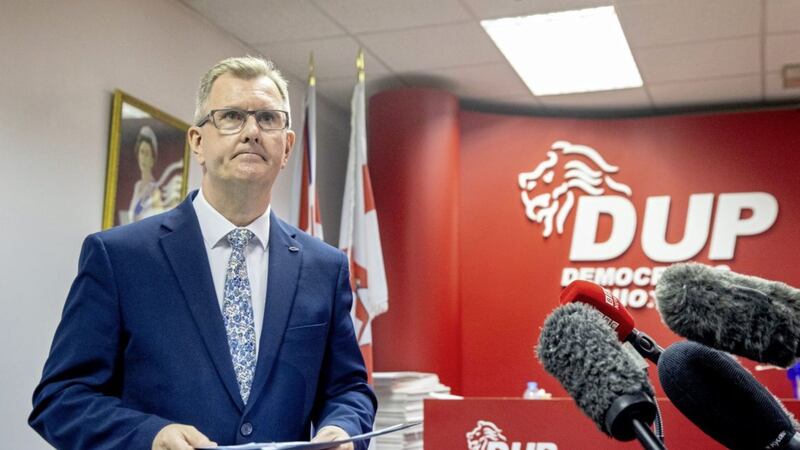So here we are, four days into a new century under partition. How is it going for you? ‘Grim’ is the word, particularly if you are a unionist.
It’s a savage irony that the first minister was deposed ahead of this bleak anniversary; and greater irony still that Arlene Foster’s demise was hastened by the intervention of loyalist paramilitaries who intimidated her colleagues. They haven’t gone away, you know.
Northern Ireland was the construct of loyalist paramilitaries led by Edward Carson and James Craig. The UVF was conceived as a private army before it was nationalised and rebranded the Ulster Special Constabulary.
It remained the attack dog for successive unionist governments who used every device at their disposal to subjugate nationalists.
Everything they did was entirely legal – vote rigging, discrimination, human rights abuses. It was legal because they made the law.
All the wrongs of one-party rule were there to be seen – hiding in plain sight as they say. British governments looked the other way.
For Lloyd George, partition was a way of outsourcing colonialism in Ireland. The Foreign Office didn’t have to worry about subjugating the natives, the Unionist Party would do it for them.
It must be said that, once they had got over partition, the Irish government did the much same thing. It looked in on itself until the violence of the 1960s could no longer be ignored, and an anguished taoiseach, Jack Lynch, called for the intervention of the United Nations.
“…The Irish Government can no longer stand by and see innocent people injured and perhaps worse,” he said. But it did, until the Anglo-Irish Agreement gave it a formal role as an honest broker for the nationalist community.
Unionist leaders – and the DUP in particular - make much of Sinn Féin’s roots in violent republicanism, and there are debating points to be had over memorials and commemorations.
But - and this is a big but - they seem to be completely oblivious to the way loyalist paramilitarism has infiltrated the warp and weft of their own politics – as Mrs Foster has found to her cost.
This ‘hear no evil, see no evil’ approach does not wash – unless you’re the historically-illiterate Brandon Lewis, and his inept boss, Boris Johnson. But then they have both declared themselves unionists – even if sticking a border down the Irish Sea is an odd way of showing it.
We know, of course, that members of the DUP are British only when it suits them.
The evidence for that is clear enough in the debates over LGBTQ+ rights and women’s health; and they are democrats only when they have the upper hand. Any pressure and it’s bring out the red berets, climb a mountain waving gun licences, invite the Loyalist Communities Council round for afternoon tea and a chin wag.
Nationalists talk a lot about Northern Ireland being a failed state. There’s more than enough evidence for that – so successful has it been at failure that the rest of the UK is now rushing to catch up.
Not only has it failed nationalists, it has failed unionists too – in particular it has failed most that generation of unionists who should have benefited from the Good Friday Agreement and the peace process, but who are languishing on the dole and being fed false information that this is because nationalists now have the upper hand.
Let us not forget that Mrs Foster – who channelled her inner peacenik in a resignation speech that could have been written by St Francis of Assisi – walked away from the peace talks; as did Sir Jeffrey Donaldson, now presenting himself as the voice of reason.
A political ideology that cannot respect the indigenous language of the place they claim to love; that cannot deal in a civil way with those representing their fellow citizens; and which cannot work with those who share this island for the betterment of their people, is not sustainable.
Seen another way, the centenary they celebrate this week was but their first step away from the United Kingdom, for the first half of that century they embedded separatism, and for the second half, obduracy aided the steady erosion of their ties to a nation that does not even want them.
As Alex Kane said here this week, unionism has a choice to make.
But that choice is not whether the union’s salvation lies in the hands of a knight of the realm, or indeed a man who believes God only thought the earth was ‘a good idea’ 6,000 years ago.









